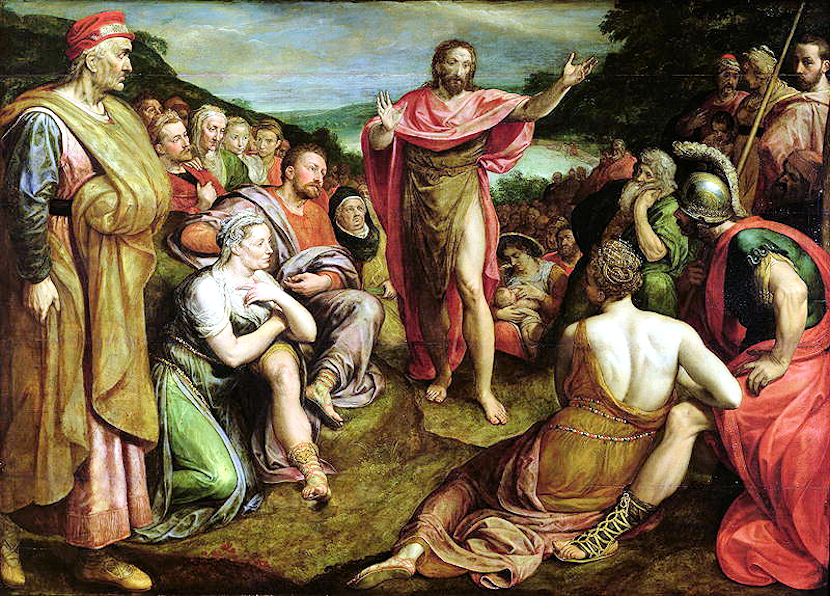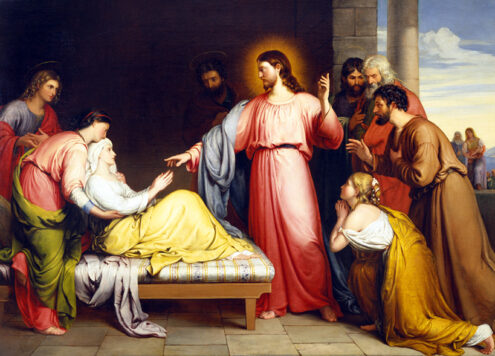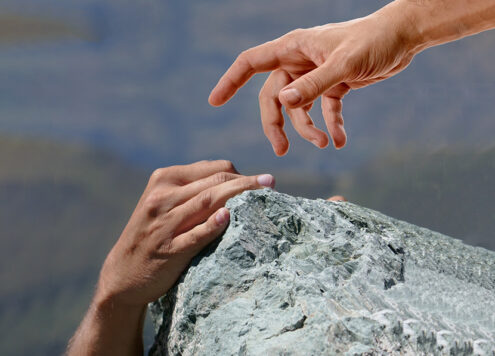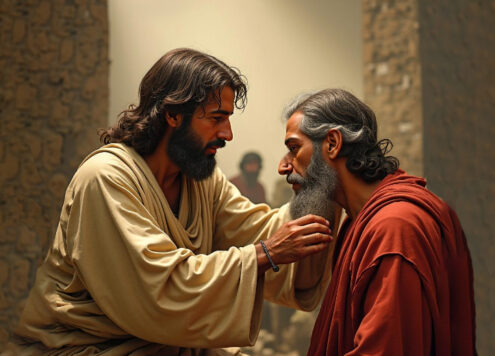The Gospel account of John the Baptist for this second Sunday of Advent paints a picture of a man crying in the wilderness, a rugged and straight-talking prophet. John was the precursor to Christ who prepared “the way of the Lord” through a baptism of repentance. Christ, who came after John, would give us a far deeper baptism of the Spirit than the baptism John performed in the Jordan river because it would wash away the inward obstacles to grace.
John serves a very important role, however. He was no sweet talker. He was as tough as nails, this eater of honey and locusts. He saw no hint of integrity in the haughty Pharisees who stood before him unmoved and smug in their self-righteousness. They could have blossomed and led their people to experience the freedom and exhilaration of the children of God, but they didn’t. They were too self-serving. John might as well lay the ax to a dry and lifeless trunk as expect a change of heart in these unforgiving men of stone whom Christ described as “whited sepulchers.”
This message, as old as the hills, is still as relevant to our lives today as the air we breathe.
We need to wake up to the reality that is unfolding before us this Advent! Make an effort to prepare for the coming of Christ. Last night, I attended a festival of lights in the home of some, dear friends. Everyone had to light a candle and say a private prayer or make a Christmas wish, and then put the candle in the place assigned to it. When all the candles were lit, it was as if we were all transformed by an inner light. We could celebrate with delicious, though simple, traditional foods and drinks throughout the night, and enjoy with laughter, the stories and the fun of being among old friends and some new friends we just met.
God’s salvation always sprouts and grows and blooms wherever there is a willing heart. John the Baptist was aware of this and he delivered his message, straight and unadorned to those along the river Jordan’s banks. John was prepared to move aside and step down so that “all flesh” might “see the salvation of God” in Christ.
Is it any wonder then that heaven and nature would sing? Is it any wonder that good people would be full of cheer at Christmas time? Is it any wonder that the prophet Isaiah would speak of this birth of the savior as a time when the wolf and the lamb, the bear and the cow, the ox and the lion would be at ease together. These are images of the peaceful reign of God that would shed a new light into our darkened world with the birth of our Savior.
Christmas is a time of hope. But we need to dispose ourselves to receive this hope by repenting of sin first, as the Baptist teaches us, so that the new light of Christ may enter into our lives.
Fr. Hugh Duffy











7 Comments
Jan
Thank you, Fr. Duffy, for your encouraging words as I walk through Advent.
Linda Lopez
A friend has sent me files from Formed. I can not read them because I am not a member.
It cost so much to belong. But, you Father, costs noting to hear and learn from Wisdom
and Knowledge our Lord has given you, and as a result pass it on to us, a free. Thank you
for sharing your insight. May you have a Blessed Christmas. You came to St Helen’s in
Glendale, and loved hearing your talks.
Hugh Duffy
Yes, Linda. There’s no price high enough to pay for God’s word.
Jeff Hammond
Thank you Fr
https://neogenique.net
You completed some good points there. I did
a search on the topic and found nearly all folks will agree with your blog. https://neogenique.net/
https://naturaldietforskolin.org
It’s in point of fact a great and useful piece of info.
I’m glad that you just shared this useful information with us.
Please keep us informed like this. Thank you for sharing. https://naturaldietforskolin.org/
Zephrofel South Africa
I would like to use the chance of thanking you for your professional suggestions
I have constantly enjoyed checking out your site.
I will be looking forward to the particular commencement of my university research and the entire preparation would never have been complete without coming over
to your web blog. If I can be of any assistance to others, I’d
be ready to help by means of what I